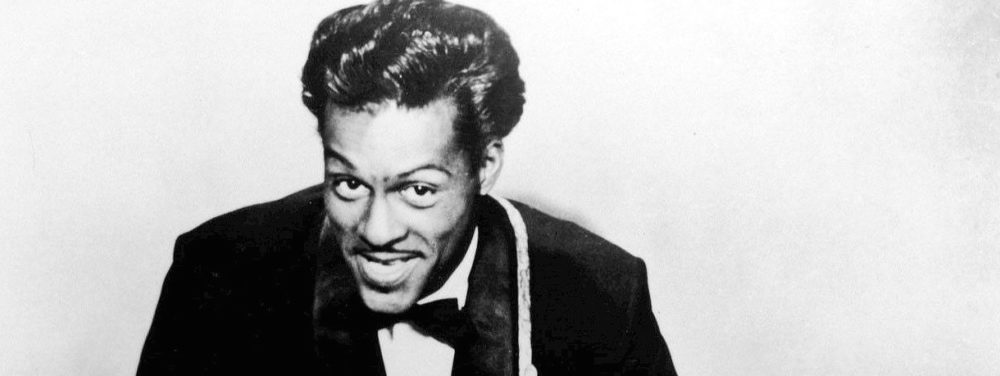By Jessica Wheeler, AliveTampaBay Columnist
When Chuck Berry died at age 90 on March 18, the world lost an innovative guitar player, a cunning wordsmith, and the first great showman of rock-and-roll. He had the look, he had the voice, he had the tunes. And while other songwriters would later top him in sophistication, it’s truly astounding how polished and literate his lyrics sound today.
While he grew up middle class in St. Louis, the son of a contractor and a school principal, Berry hit hard times when he was sentenced to three years in jail for armed robbery when he was 18 years old. While imprisoned, he formed a music group with some of the other inmates. After his release, Berry picked up his guitar and began performing.
It was the early 1950s, and rhythm-and-blues music was becoming more and more popular, with black and white audiences alike. Performing in Missouri, Berry was also exposed to country music, a genre that he grew to respect and then to love. He began to incorporate sounds from country records into blues songs, grafting twangy guitar licks to a big beat. The sound won over a large audience, successfully pleasing crowds who preferred country as well as those who wanted to hear rhythm and blues.
Like many other Southern musicians of the era, Berry traveled north to Chicago, hoping to make a record. It was there in 1955 that he met legendary bluesman Muddy Waters, who referred him to Chess Records. Berry recorded “Maybellene,” a reworking of a traditional song called “Ida Red.” Considered by many to be the first rock-and-roll song ever recorded, the song contains all of the Berry trademarks: flashy guitar, thumping beat, and a wry, rapid-fire delivery of humorous lyrics. It was an immediate smash, selling more than a million copies.
The hits just kept coming. Berry’s catalog is an embarrassment of riches, with so many hit songs it’s hard to believe one man wrote them all: “Johnny B. Goode,” “Brown Eyed Handsome Man,” “Roll Over Beethoven,” “Rock and Roll Music,” “No Particular Place to Go,” “You Never Can Tell,” “Sweet Little Sixteen,” “You Can’t Catch Me.” The list goes on. All of these songs were tailor-made for his young audience: they were songs about teenage things. Going to school, cruising in cars, looking for that special someone. He gave rock-and-roll its vocabulary, drawing its parameters while the genre was still being formed. While many songs of the day were repetitive and simple, Berry used wordplay and clever rhymes. Like country songs, his songs tell stories; like rhythm-and-blues songs, they make your feet want to dance.
https://youtu.be/5eUc7o5lmtY
As a live performer, he was singular: his famous “duck walk” and natty style made him the poster boy for the new genre of rock-and-roll. He was a natural for television and movie screens, and knew just how to play to a live audience after years on the roadhouse circuit. He faced personal problems (another stint in jail in the early 1960s, and another conviction in the 1980s) but came out still ready to play. His songs were covered by the Beatles (“Rock and Roll Music,” “Roll Over Beethoven”), reworked by the Beach Boys (“Sweet Little Sixteen” became “Surfin’ USA”) and stolen by the Rolling Stones (Keith Richards said “I lifted every lick he ever played”). Watching him in video footage on YouTube, it is difficult to tell when each segment was filmed—he remained unchanged for so many years. He was the first rock star, a troublemaker, a showman, and a first-rate guitar player. He was also the first poet laureate of rock-and-roll. “Hail, hail rock-and-roll/Deliver me from the days of old,” he sang in “School Days.” And now we say, with respect, “Hail, hail, Chuck Berry.”
https://youtu.be/LgQJHyLLTHU
Jessica Wheeler is a columnist for AliveTampaBay.

